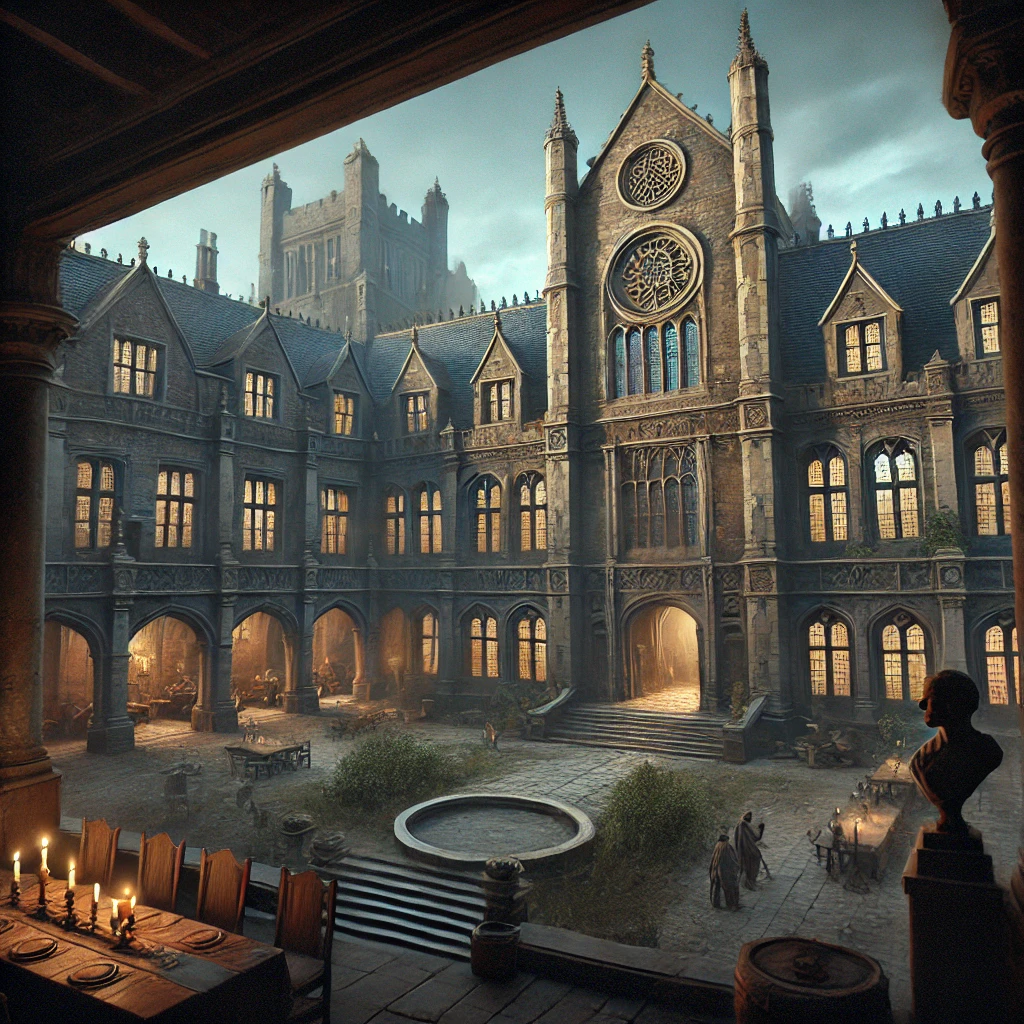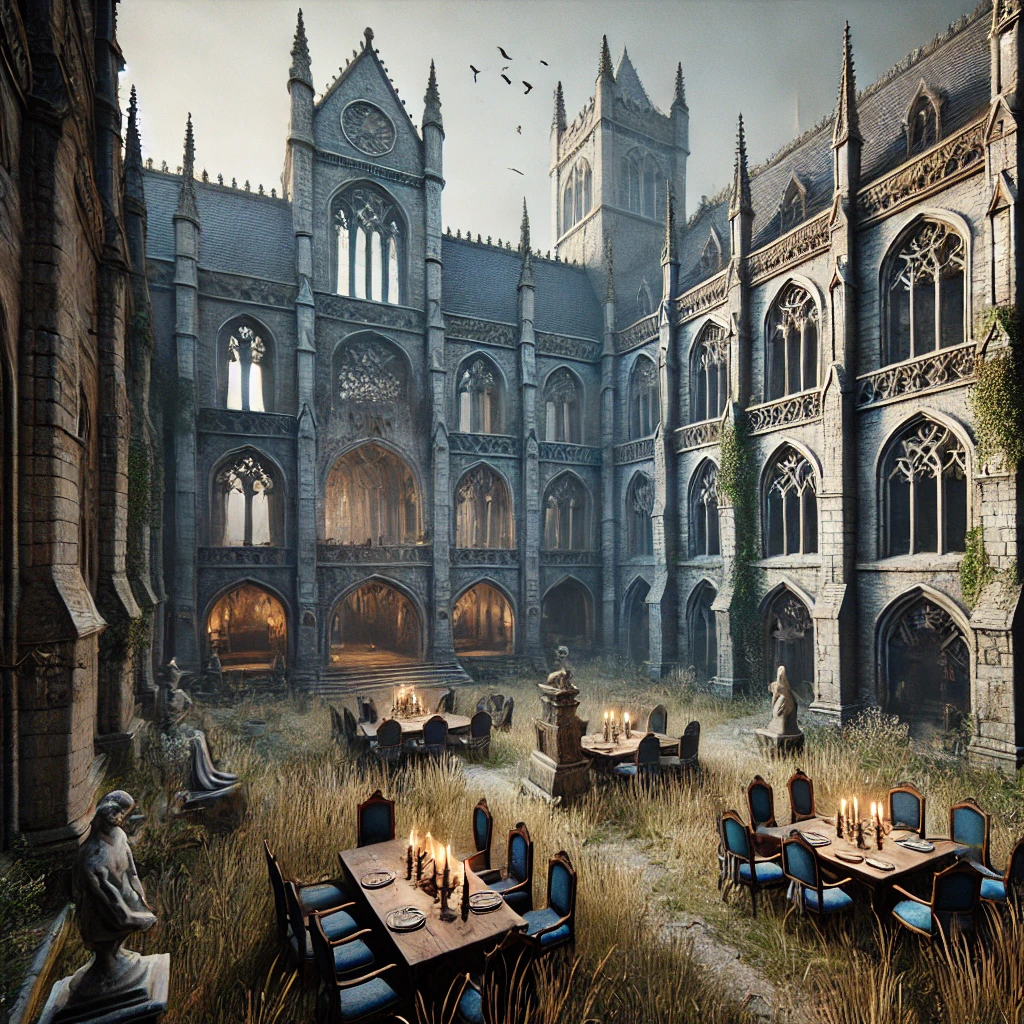
The Dearth of Entertainment in Manor Lords
In the expansive realm of medieval strategy games, manor lords lack of entertainment seeks to captivate players with its immersive city-building mechanics, historical accuracy, and strategic gameplay. Yet, beneath its veneer of medieval charm lies a fundamental flaw that many have pointed out: a conspicuous lack of entertainment options. This article explores this critical aspect of the game, delving into its impact on the gameplay experience, player satisfaction, and the broader reception of Manor Lords in the gaming community.
Understanding Manor Lords’ Premise
Manor Lords positions itself as a unique blend of a medieval city-builder and a real-time strategy game. Players are entrusted with the monumental task of developing a medieval town, managing resources, and engaging in battles to defend their growing domain. The game’s detailed simulation of medieval life appeals to those who appreciate a slow-burn, realistic approach to city-building. However, as the game meticulously focuses on historical accuracy and resource management, it has arguably overlooked the element of entertainment, which is critical for maintaining player engagement over long periods.
Why Entertainment Matters in Strategy Games
The concept of entertainment in strategy games extends beyond mere diversion; it is the glue that holds together player interest. Games like Manor Lords that emphasize realism often run the risk of becoming monotonous if they fail to balance the strategic depth with engaging activities. The lack of dynamic events, interactive scenarios, and varied challenges can make the game feel static, leading to a repetitive experience that lacks the excitement necessary to keep players invested. This deficit is particularly felt in Manor Lords, where the painstaking attention to realism seems to come at the expense of engaging diversions.
The Core Gameplay Mechanics of Manor Lords
The core gameplay of Manor Lords revolves around building and managing a medieval town. Players must carefully plan their towns, construct buildings, and manage resources such as wood, food, and stone. The game’s emphasis on historical accuracy means that even simple tasks like farming or constructing roads require meticulous planning. While these mechanics contribute to the game’s realism, they often lack the dynamic and unpredictable elements that could add a layer of excitement to the player’s experience. This rigid structure, while immersive, fails to offer the flexibility that many players seek in a game that purports to simulate medieval life.
Entertainment Deficiencies in City-Building Aspects
City-building is at the heart of Manor Lords, but the lack of entertainment-oriented features within this aspect has drawn criticism. In other games of the genre, there are often festivals, special events, and unique challenges that break up the routine of construction and resource management. These activities serve as a welcome distraction from the grind of maintaining a burgeoning settlement. Manor Lords, in contrast, seems to lack these diversions, leading to a gameplay experience that can feel monotonous over time. The absence of these entertainment features makes the city-building process feel like a chore rather than an engaging adventure.
The Impact of Static Gameplay on Player Engagement
One of the most significant criticisms of Manor Lords is how its static gameplay negatively impacts player engagement. In a game that demands strategic thinking and long-term planning, the monotony of managing resources without varied side activities can quickly diminish a player’s enthusiasm. For instance, after constructing essential buildings and setting up a sustainable economy, there are few engaging activities left to sustain a player’s interest. This lack of dynamic content means that players are left with little to do but optimize resource flows, which can become tiresome without the injection of more engaging gameplay elements.
Realism vs. Entertainment: A Double-Edged Sword
Manor Lords strives for a high level of realism, immersing players in the challenges of medieval life. Yet, realism can become a double-edged sword when it impinges upon the entertainment value of a game. Players of strategy games often seek a balance between historical authenticity and engaging gameplay. However, in Manor Lords, this balance leans heavily toward realism, with less consideration for diversions that might captivate the player’s interest. The absence of dynamic events, social activities, or mini-games limits the ways players can interact with the world, ultimately making the experience feel restrictive.
How Does the Lack of Entertainment Affect Replayability?
Replayability is a crucial factor for the longevity of any game, especially in the strategy genre. A game with a rich variety of activities and dynamic scenarios can keep players coming back for more, eager to try different strategies or face new challenges. The Manor Lords lack of entertainment is a significant issue in this regard. The absence of varied events or surprises means that once a player has experienced the core mechanics, there is little incentive to return. This lack of replayable content can stymie the game’s appeal, leaving it with a limited lifespan despite its intricate design.
Comparing Manor Lords with Other City-Builders
To better understand the shortcomings of Manor Lords, it is useful to compare it with other city-building games in the market. Games like Anno 1800, Banished, and Cities: Skylines offer a variety of engaging scenarios and challenges that break up the routine of city management. These games feature events like festivals, disasters, and political intrigues, which add layers of unpredictability to the experience. In contrast, Manor Lords focuses heavily on replicating the medieval lifestyle but lacks similar events that could diversify the gameplay. This focus results in a more rigid and predictable experience that fails to surprise the player.
The Role of AI and NPC Behavior in Player Satisfaction
The behavior of AI and NPCs plays a critical role in making a game world feel alive and dynamic. In Manor Lords, the actions of NPCs are tied closely to the player’s management of resources and town planning, but their routines often feel repetitive and lack spontaneity. Unlike games where NPCs might initiate events or react dynamically to player decisions, the NPCs in Manor Lords function more like cogs in a machine. This lack of dynamic interactions between NPCs and the player contributes to the perception of a static game environment, further reinforcing the sense that the game lacks engaging elements.
The Absence of Social Interaction and Role-Playing Elements
Social interactions and role-playing elements are crucial in many strategy games, offering players a chance to connect with their subjects or personalize their experience. Manor Lords, however, lacks these dimensions. There are few opportunities for the player to interact with their villagers beyond issuing commands for resource collection or construction. Games that include festivals, town meetings, or personal stories among villagers add a human element that helps players feel more invested in their virtual communities. The absence of such interactions in Manor Lords contributes to a sense of isolation and a lack of connection to the world, making it harder for players to become emotionally invested.
The Strategic Depth of Battles Versus Their Entertainment Value
While Manor Lords features a battle system that aligns with its strategic focus, the entertainment value of these battles has been questioned. Battles in the game require careful planning, troop management, and tactical maneuvers, but they can also become repetitive and predictable. The lack of variety in enemy tactics or battle scenarios means that players might find themselves going through similar motions during each encounter. Without unique battle events or unexpected challenges, the warfare aspect of the game, while deep, can lack the excitement that many players crave from strategic confrontations.
Player Feedback and Community Reactions
Community feedback has been instrumental in highlighting the Manor Lords lack of entertainment. Players have taken to forums and review sites to express their desire for more interactive features, dynamic events, and engaging activities within the game. The feedback often centers around the need for more content that could diversify the game’s pacing, such as seasonal events, cultural festivals, or random challenges that would require the player to adapt their strategies. This ongoing discussion among the player base suggests a strong demand for enhancements that could make the game’s medieval world feel more vibrant and alive.
Potential Solutions to the Lack of Entertainment
Addressing the Manor Lords lack of entertainment would involve introducing features that add variety and spontaneity to the gameplay. Developers could consider integrating seasonal events, such as harvest festivals or trade fairs, which could provide temporary boosts or challenges. Another possibility would be introducing quests or story-driven events that give players short-term goals outside of the typical resource management tasks. Such features could break up the monotony and inject a sense of excitement and unpredictability, making the game world feel more dynamic and engaging.
The Role of Modding in Enhancing the Game Experience
Modding communities often play a crucial role in expanding the content of games that have limited features. Manor Lords has the potential to benefit significantly from a robust modding community, where players can create new events, challenges, or even overhaul game mechanics to enhance entertainment value. Mods could introduce new gameplay elements that add layers of engagement, such as expanded social interactions, customizable festivals, or unique battle scenarios. While relying on mods is not a solution to the core issues, it can help bridge the gap until official updates address the need for more engaging content.
Entertainment in Historical Simulation: A Delicate Balance
Creating an engaging game that simulates historical life is always a delicate balance. The authenticity of a historical simulation can immerse players in a particular era, but it must also include engaging elements that keep players entertained. Manor Lords excels in its dedication to historical detail but falters when it comes to offering varied gameplay experiences that maintain long-term interest. Developers must strike a balance between realism and engaging content to avoid alienating players who might find the experience too rigid or lacking in dynamism.
The Importance of Player Freedom and Creativity
In many successful city-building games, the freedom to experiment and create is a major draw for players. The ability to design unique towns, manage resources creatively, and tackle unforeseen challenges allows players to express themselves within the game world. Manor Lords, despite its intricate simulation, provides limited avenues for creative expression due to its lack of dynamic events and activities. This restrictiveness can dampen the sense of discovery that players seek in such games. By introducing more open-ended challenges and player-driven events, the game could foster a more engaging and creative environment.
The Aesthetic Appeal Versus Gameplay Depth
One of the most praised aspects of Manor Lords is its visual design, which captures the beauty and detail of a medieval world. The lush landscapes, detailed building designs, and authentic animations contribute to the game’s aesthetic appeal. However, this visual richness contrasts with the relatively shallow entertainment options available within the gameplay. While the environment is beautifully crafted, players have noted that the beauty of the world does not translate into engaging activities. This dissonance between visual appeal and gameplay depth is a key reason why the lack of entertainment is so acutely felt.
Longevity and Player Retention Issues
The Manor Lords lack of entertainment directly impacts its ability to retain players over time. Without new challenges or events to keep the gameplay fresh, many players find themselves losing interest after their initial enthusiasm fades. Longevity in a strategy game is often tied to the availability of new content and challenges, which provide reasons for players to continue investing time. For Manor Lords, expanding its repertoire of entertainment options could significantly improve player retention and extend its lifespan in the competitive market of strategy games.
Balancing Complexity with Fun
The complexity of Manor Lords is one of its greatest strengths, offering a detailed simulation of medieval town-building and warfare. Yet, this complexity must be balanced with elements that add a sense of fun and excitement to the experience. Games that focus solely on challenging mechanics can feel punishing or overly serious, which limits their appeal to a broader audience. The introduction of light-hearted elements, such as town celebrations or unexpected comedic events, could provide a refreshing counterbalance to the game’s otherwise serious tone, making it more accessible to a wider range of players.
Player Autonomy and Engagement
Player autonomy is central to the appeal of strategy games. The ability to make meaningful decisions and see their impact on the game world is what makes the genre so engaging. However, in Manor Lords, the scope for player-driven entertainment is limited. The game’s structure often feels prescriptive, with little room for experimentation beyond optimizing resource management. Introducing mechanics that allow players to shape the social and cultural aspects of their towns could add depth and variety, empowering players to create unique stories within their game worlds.
The Future of Manor Lords: Room for Improvement
Looking forward, Manor Lords has significant room for improvement when it comes to integrating more entertaining elements into its core gameplay. As the game continues to develop, there is potential for expansions or updates that address player feedback and introduce new content. With the right focus on diversifying the player experience, Manor Lords could evolve into a more engaging and dynamic game that better balances its realistic simulation with elements of fun. The potential for growth exists, and the gaming community remains hopeful for changes that will make the medieval world of Manor Lords more vibrant.
The Developer’s Role in Shaping Player Experience
Game developers play a crucial role in shaping the player experience, and their approach to balancing realism and entertainment can make or break a game’s success. For Manor Lords, addressing the lack of entertainment requires a willingness to listen to player feedback and innovate beyond the initial design philosophy. Developers who prioritize creating a well-rounded experience can transform the game from a niche historical simulation into a broader success that appeals to both strategy enthusiasts and casual players alike.
The Economic Simulation and Its Impact on Engagement
The economic simulation in Manor Lords is a key aspect of its gameplay, requiring players to balance resources, trade, and town management. However, the economic model’s complexity does not compensate for the lack of dynamic events or interactive scenarios. Players may find themselves trapped in a cycle of repetitive actions—gathering resources, managing workers, and constructing buildings—with little variation. The introduction of economic events, such as market fluctuations or trade deals with neighboring lords, could add an extra layer of intrigue to the game’s economic management, offering players new challenges to tackle.
Conclusion: Addressing the Manor Lords Lack of Entertainment
The Manor Lords lack of entertainment is a critical issue that affects its reception among players. While the game succeeds in creating a detailed, immersive simulation of medieval life, it falls short when it comes to providing engaging activities that keep players invested over time. Addressing this shortfall through updates, new features, and a balance between realism and engaging content could transform Manor Lords into a more compelling experience. For fans of the genre, the potential for improvement keeps hope alive that Manor Lords will eventually become a game that is as entertaining as it is authentic.







